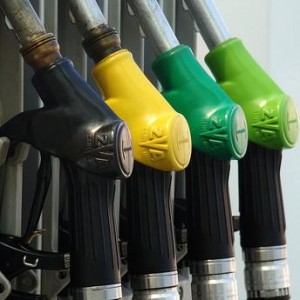 DUBAI, Jan 9 (Reuters) - Iran's state-owned oil refining company denied on Wednesday that poor quality, domestically-produced fuel is contributing to Tehran's worsening pollution crisis, saying that its gasoline met refining standards.
DUBAI, Jan 9 (Reuters) - Iran's state-owned oil refining company denied on Wednesday that poor quality, domestically-produced fuel is contributing to Tehran's worsening pollution crisis, saying that its gasoline met refining standards.Thick yellow smog has shrouded the Iranian capital for most of the past week, prompting the closure of government offices, banks and schools for several days and official calls for residents to leave the city or remain indoors.
Residents are often subjected to severe pollution created by heavy traffic and large-scale industry. On windless days the particles get trapped in the city by the surrounding Alborz mountains to form noxious and harmful air.
But the recent increase in smog is blamed by many on domestically produced fuel, the English-language Tehran Times reported this week, asserting that Iran's car manufacturers continue to produce cars with inefficient combustion systems.
In response, the National Iranian Oil Refining and Distribution Company said in a statement: "The increase in the rate of air pollution in large cities in�Iran�has not been caused by products from (Iran's petrochemical producers)."
It said tests demonstrated that Iranian gasoline met national standards and was "comparable" to the products of other refining companies.
Officials in the Islamic Republic have previously stated that around a third of Iran's domestically produced gasoline and diesel meets Euro-4 and Euro-5 standards.
To ease the smog, the government ordered the temporary closure of factories and is more rigorously enforcing a traffic limitation scheme that allows cars to drive in the city on alternate days depending on whether the final digit of their number plates is odd or even.
But concern is rising among health officials over what many regard as a worsening pollution problem and there are calls for the government to do more to tackle it.
Earlier this week, a health ministry adviser, Hassan Aghajani, appeared on national television saying that over the past 10 days there had been a 30 percent increase in hospital admissions in Tehran caused by people with breathing problems.
Aghajani said more than 4,000 people had died from the effects of air pollution in the 12 months from March 2011.
The use of nationally refined gasoline has increased dramatically over the last two years as sanctions imposed by the United States and European Union over Iran's nuclear programme have cut imports of refined fuels.
"There is no strong determination on the part of officials to reduce air pollution, and the citizens will continue to pay the price for this negligence," the Tehran Times said in a news commentary.
While the worst the smog has cleared and offices have reopened, the experience lingers among many Tehran residents.
"The situation was really bad. We could smell the pollution in the air. Leaving houses made you feel sick and gave you headaches," a 30-year-old engineer, who asked not to be named, said by email.
By Reuters
The Iran Project is not responsible for the content of quoted articles.










